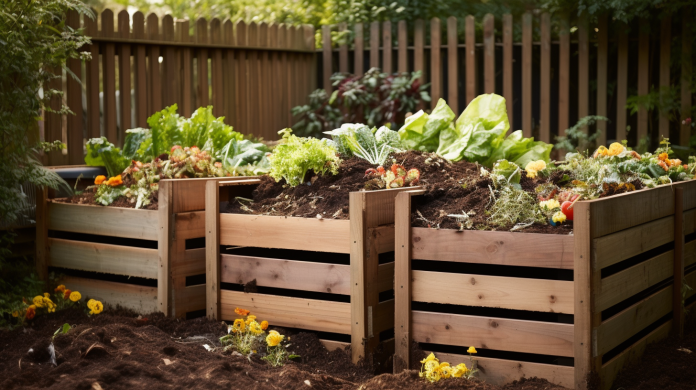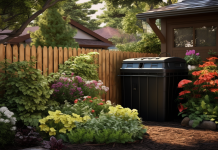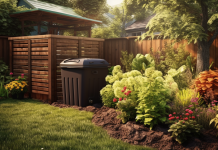Composting is an essential practice for eco-conscious individuals. Choosing between compost bins and piles can be a daunting task. We provide insights into the advantages of each method, considerations for limited space, and factors that favor a hands-off approach.
Advantages of Compost Bins
One of the key advantages of using compost bins is that they provide a controlled environment for the decomposition process. This allows for faster and more efficient composting.
When it comes to compost bin options, there are various types available in the market.
- the traditional compost bin, which is usually made of durable plastic and has a lid to keep pests out.
- a tumbling compost bin, which allows for easy turning and mixing of the compost.
Additionally, there are specialized compost bins designed for specific purposes, such as worm composting bins for vermicomposting.
Regardless of the type of compost bin chosen, it is important to maintain it properly. Regular compost bin maintenance includes turning the compost to aerate it, keeping it moist but not overly wet, and adding a balance of green and brown materials.
Advantages of Compost Piles
The advantages of using compost piles include their simplicity, cost-effectiveness, and ability to accommodate larger quantities of organic waste. Compost piles offer several benefits in the composting process.
Some of the benefits of using compost piles are:
- Increased microbial activity: Compost piles create an ideal environment for microorganisms to break down the organic material, resulting in faster decomposition and nutrient-rich compost.
- Enhanced aeration: The loose structure of compost piles allows for better airflow, promoting aerobic decomposition and minimizing the risk of unpleasant odors.
- Versatility: Compost piles can handle a wide range of organic materials, including trimmings, kitchen scraps, and even small branches.
- Flexibility: Compost piles can be easily adjusted to accommodate larger quantities of waste. This makes them suitable for commercial or larger-scale composting operations.
- Natural heat generation: Compost piles generate heat as a result of microbial activity, optimizing the composting process and killing weed seeds and pathogens.
Considerations for Limited Space
Small scale options are ideal for individuals with limited space, such as those living in apartments. Apartment composting has gained popularity as people become more conscious of their environmental impact and seek sustainable solutions.
For those with limited outdoor space, indoor composting methods like worm composting or vermicomposting can be a viable option. Utilize specialized containers that allow for the breakdown of organic waste materials, producing nutrient-rich compost that can be used for gardening or potted plants.
Key Takeaways
- Compost bins offer a controlled environment for faster and efficient composting.
- Compost piles are simple, cost-effective, and can accommodate larger quantities of organic waste.
- Compost piles have increased microbial activity for faster decomposition and nutrient-rich compost.
- Compost bins have various types available, including traditional bins, tumbling bins, and specialized bins for vermicomposting.
Conclusion
Compost bins offer advantages such as containment and ease of maintenance. People typically enclose them in structures to keep the compost contained and organized. This containment can be especially beneficial for individuals with limited space, as it prevents the compost from spreading out and taking up too much room. Additionally, compost bins often have lids that help keep pests and odors at bay.
On the other hand, compost piles allow for larger quantities and a more natural decomposition process. People essentially stack organic material into large mounds or piles that are left to decompose over time. This method allows for a larger volume of compost, which can be useful for individuals with a lot of waste or other organic material to dispose of. Compost piles also tend to have a more natural decomposition process, as they rely on air and moisture to break down the organic material.
Examine a variation on piles, ‘bays' made from old pallets. Make bay one from 3 pallets and you can add more bays to suit your own requirements. It is beneficial to have at least two bays since you can turn the compost from bay 1 to bay 2 if you wish to speed the process.
By weighing these considerations, individuals can choose the perfect composting solution that meets their specific needs and preferences:
- a compost bin for contained and easy maintenance
- a compost pile for larger quantities and natural decomposition
- a number of pallet bays
These options can help individuals reduce waste and create nutrient-rich compost for their gardens.
Please see our supporting article:
The Science Behind Composting: How Organic Matter Turns Into Black Gold



